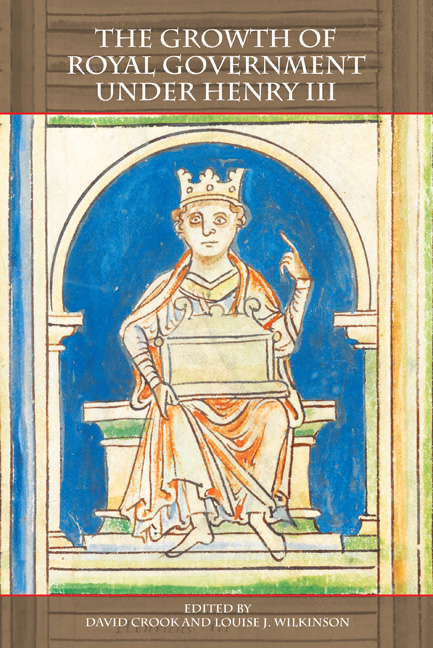2 - The Form and Function of the Originalia Rolls
Published online by Cambridge University Press: 13 April 2021
Summary
Ever since its inception in 2005, the Henry III Fine Rolls project has been bringing to greater public attention the rolls upon which are recorded the offers made from all sections of society for the favour of medieval England's longest-reigning monarch. The fine rolls, as is splendidly demonstrated throughout this volume, reveal much regarding the nature of kingship and royal patronage, politics and government, and of changes to law, society and the environment in the thirteenth century. They also provide important clues to the workings of the royal administration during key phases in the development of the written record. The project has also explored a supplementary series of rolls that occasionally sheds light on the Crown's financial management practices in thirteenth-century England and enhances our understanding of the bureaucratic processes behind securing the king's goodwill.
The originalia rolls (TNA series E 371) consist essentially of heavily abridged extracts of entries from the fine rolls. Drawn up by Chancery clerks, these extracts were periodically sent membrane by membrane to the Exchequer to provide it with the financial information it needed to pursue debtors, process accounts and oversee the management of the Crown's estates. However, since they ostensibly repeat the information found on the fine rolls they have been largely ignored by historians, particularly since the publication by Charles Roberts in 1835–6 of his two volumes of excerpts from the Henrician fine rolls. Today, indeed, the originalia rolls are no longer stored at The National Archives but in deep storage at a former Cheshire salt mine, a mark of their apparent lack of utility. By contrast, I want to suggest that their relationship with the fine rolls was more nuanced; their position in the bureaucratic chain acted as a check on the enrolment of fines, while at the Exchequer they became an alternative source for various key legal and administrative matters, for which they may have retained some currency over time and may still have valuable things to tell modern scholars.
The Originalia Rolls
For the reign of Henry III only two originalia rolls survive before 1235: those for 1226–7 and 1232–3. Thereafter, they survive in an almost unbroken sequence. In three years – 1236–7, 1237–8 and 1239–40 – they provide the main evidence of fines, as the corresponding fine rolls do not survive. The originalia rolls’ main role was fiscal.
- Type
- Chapter
- Information
- The Growth of Royal Government under Henry III , pp. 30 - 43Publisher: Boydell & BrewerPrint publication year: 2015



